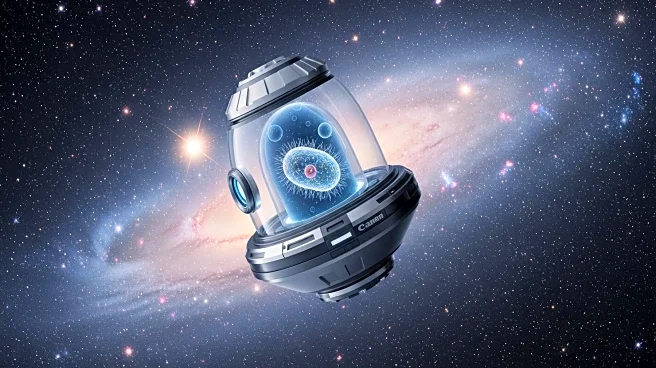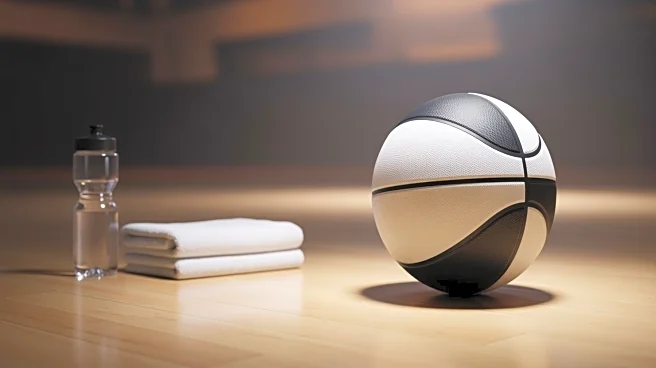What is the story about?
What's Happening?
Recent research conducted during the Suborbital Express 3 - M15 launch campaign has demonstrated that Bacillus subtilis, a microbe essential for human health, can survive the extreme conditions of space travel. The study, involving a suborbital flight, tested the effects of extreme acceleration, microgravity, and deceleration on these microbes. The ADI-α payload, developed by ResearchSat, was integrated onto a sounding rocket and launched from the Esrange Space Centre in Northern Sweden. The payload included various scientific experiments, including those involving Bacillus subtilis spores, which were subjected to conditions such as a maximum acceleration of 13 g. The findings revealed that the spores maintained their growth capabilities and structural integrity, indicating their potential viability for future space missions.
Why It's Important?
This research is significant as it provides insights into the resilience of microbes in space, which is crucial for the development of sustainable life support systems for astronauts. Understanding microbial survival in space can lead to innovations in biotechnology and enhance the safety and health of astronauts on long-duration missions. The ability of these microbes to endure harsh space conditions suggests that they could play a vital role in future interplanetary travel, including missions to Mars. This study also contributes to the broader understanding of life’s potential to survive beyond Earth, which could have implications for astrobiology and the search for extraterrestrial life.
What's Next?
The successful demonstration of microbial survival in space conditions opens the door for further research into the use of microbes in space exploration. Future studies may focus on the application of these findings in developing life support systems and biotechnological innovations for space missions. Additionally, the research could inform the design of experiments for upcoming missions to Mars and other celestial bodies, where understanding microbial behavior in space environments will be crucial.
Beyond the Headlines
The implications of this research extend beyond space exploration, as it could lead to advancements in biotechnology on Earth. The resilience of microbes in extreme conditions may inspire new approaches to biotechnological applications, such as the development of robust microbial strains for industrial processes. Furthermore, the study highlights the importance of interdisciplinary collaboration in advancing space science and technology.















